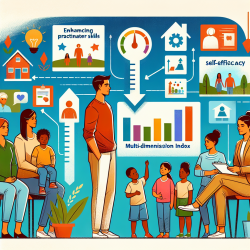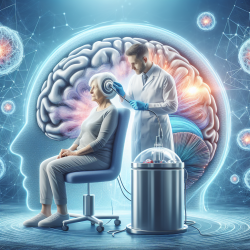In the rapidly evolving field of speech-language pathology, data-driven decisions are paramount to creating successful outcomes for children. TinyEYE, a leading provider of online therapy services to schools, is dedicated to leveraging the latest research to enhance the efficacy of our interventions. The 2022 ACMT Annual Scientific Meeting Abstracts – Virtual presents a wealth of data that can be instrumental in refining our approaches. This blog delves into the key findings from the meeting and explores how practitioners can integrate these insights into their practice or pursue further research.
Key Findings from the 2022 ACMT Annual Scientific Meeting
The 2022 ACMT Annual Scientific Meeting showcased innovative research from around the world, focusing on toxicologic phenomena and the intersection of medical toxicology and COVID-19. Among the 147 abstracts presented, several studies stand out for their potential application in enhancing online therapy services for children. Here are some notable findings:
- MicroRNAs in Diagnostic Biomarkers: The study on Russell’s viper envenoming highlighted the diagnostic potential of microRNAs. This concept can be translated into speech-language pathology by exploring microRNAs as biomarkers for early identification of speech and language disorders.
- Forensic Utility of Cannabigerol (CBG): Research on CBG as a biomarker for recent cannabis use underscores the importance of specific biomarkers in clinical assessments. In speech-language pathology, identifying reliable biomarkers can improve early diagnosis and intervention strategies.
- Genetic Variations and Overdose Severity: The study on genetic variations in the mu-opioid receptor gene (OPRM1) and their association with overdose severity suggests the potential for personalized approaches in therapy. Understanding genetic predispositions can help tailor interventions for children with speech and language disorders.
- Adulterants in Toxicology: The research on adulterants in opioid overdose patients highlights the need for comprehensive assessments in clinical practice. For speech-language pathologists, this translates to thorough evaluations to identify underlying factors affecting speech and language development.
- Public Perceptions and Novel Distribution Models: The study on community perceptions of naloxone distribution models emphasizes the importance of public engagement in healthcare interventions. Speech-language pathologists can benefit from involving parents and educators in the therapy process to ensure holistic support for children.
Implementing Research Outcomes in Online Therapy
To maximize the impact of these findings, practitioners can take several steps to integrate the research outcomes into their online therapy services:
- Incorporate Biomarkers in Assessments: Utilize emerging biomarkers, such as microRNAs, to enhance the early diagnosis of speech and language disorders. This can lead to more targeted and effective interventions.
- Personalize Therapy Based on Genetic Insights: Consider genetic variations when developing therapy plans. Personalized approaches can address specific needs and improve therapy outcomes for children.
- Conduct Comprehensive Evaluations: Implement thorough assessments to identify all factors influencing a child's speech and language development. This holistic approach ensures that no underlying issues are overlooked.
- Engage Parents and Educators: Foster collaboration with parents and educators to create a supportive environment for children. Involving key stakeholders can enhance the effectiveness of online therapy.
- Stay Informed and Adaptable: Continuously update your knowledge base with the latest research findings. Adapt your therapy methods to incorporate new insights and maintain a high standard of care.
Encouraging Further Research
While the 2022 ACMT Annual Scientific Meeting provides valuable insights, there is always room for further research. Practitioners are encouraged to explore the following areas:
- Longitudinal Studies on Biomarkers: Conduct long-term studies to validate the effectiveness of biomarkers in diagnosing and treating speech and language disorders.
- Genetic Research in Speech-Language Pathology: Investigate the role of genetic variations in speech and language development to develop more personalized therapy approaches.
- Impact of Comprehensive Evaluations: Study the outcomes of holistic assessments to determine their effectiveness in identifying and addressing all factors affecting speech and language development.
- Parent and Educator Engagement: Research the impact of involving parents and educators in the therapy process on the overall success of online therapy interventions.
- Innovative Therapy Methods: Explore new and innovative therapy methods based on the latest research findings to continually improve the quality of care provided to children.
To read the original research paper, please follow this link: 2022 ACMT Annual Scientific Meeting Abstracts – Virtual
Conclusion
By leveraging the latest research findings from the 2022 ACMT Annual Scientific Meeting, speech-language pathologists can enhance their online therapy services for schools. Implementing data-driven decisions and encouraging further research will lead to better outcomes for children. TinyEYE is committed to staying at the forefront of innovation and continuously improving our therapy approaches to support children's speech and language development.










